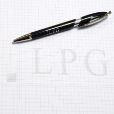Tax deductibility of operating expenses
The tax law allows companies to deduct operating expenses. These expenses are generated by the company in order to benefit it. An expense borne by the company but for the private needs of its manager is not deductible.
For example, the manager of a company (SA, SARL) invites a client for lunch to conclude a deal. The relation is purely professional and the expense is deductible. If the same manager invites a friend, the relation is private and the expense is not deductible. When the client is also a friend, the manager needs to determine if the invitation is professional or private.
The principal issue is to understand when an expense is private and when it is professional.
General rule on tax deductibility
The amended law of December 4th 1967 on income tax (L.I.R.) differentiates between tax-deductible expenses and non-tax-deductible expenses:
- Deductible expenses (operating expenses)
Operating expenses are inherent to the activity of the company. These expenses encompass all expenses necessary for the life of the company, its activity and the completion of sales. (1)
Operating expenses are, for example, rent, wages, electricity, some traveling and catering expenses.
- Non-deductible expenses (2)
These are expenses borne for the private needs of the manager or owner, for the needs of his family, for his lifestyle even if some of these expenses can benefit his business.
In order to classify an expense as deductible, there needs to be a close and exclusive causal link between the expenses and the revenues generated by the company. The tax-payer can be asked to prove that the expenses were borne only for professional reasons even though they could have been used for private reasons.
TWO TYPES OF EXPENSES MOST FREQUENTLY CHALLENGED
Catering expenses
Catering expenses are deductible if they were exclusively borne for professional purposes.
Jurisdictions take into account several criteria which they judge as a whole:
- Friendship
is the relation between the taxpayer and his guest purely professional? Or is there a friendship between them? Is that friendship important?
Importance is judged based on the friendship’s duration and the implication of the manager in the life of his guest.
- Frequency
Frequency by itself is not decisive. The professional necessity of each meal needs to be taken into account. The taxpayer must prove that each meal has professional importance and that the frequency cannot be reduced without risking losing some expected revenue.
- The topic of the meal
Guests can attest of the substance of the conversations during the meal. They can explain their relation with the manager. And they can confirm if the meeting remained purely professional.
- The form
Other elements than the meal itself can indicate whether the meal is private or professional.
Example:
- The place
Each meal is analyzed compared to the expected gains. An expensive meal in an expensive restaurant for a little profitable contract is akin to a private expense because the cost is too high compared to the expected gains.
- The guests
The number of guests and their relations with the manager influences whether or not the expense is private or professional. A high number of guests more easily hint at a private expense.
- The date
A meal on a Sunday or on a public holiday is less likely to be considered professional.
All these elements cannot be analyzed separately. They are considered as a whole for the administration to determine if the meal was private or professional.
Car and travelling expenses
Car and travelling expenses engaged only for professional purposes are operating expenses. However, the taxpayer must be able to prove that each travel was carried out for professional reasons.
When a car is made available, it is useful to keep a journey log-book to distinguish between private and professional expenses.
Example of a journey log-book:
|
|
|
|
Kilometers |
|
|
Date |
Drive |
Purpose |
Private |
Professional |
|
|
|
|
|
|
|
|
|
|
||
Each trip needs to be referenced with the date, the direction, the purpose and the number of kilometers in each corresponding column (“Private” or “Professional”)
The journey log-book enables the computation of the share of private expenses following the ratio: (number of private kilometers/ total number of kilometers) * 100
The ratio is applicable to all the vehicle related expenses:
- Depreciation
- Insurance
- Gaz
- Repairs
Example:
Total expenses related to the vehicle: 12 000€
Private use ratio: 30%
(12 000 / 0.3) = 3 600 €
The 3600€ will need to be borne by the user of the vehicle.
Article 45 1st paragraph 1st L.I.R.
Article 12 1st paragraph L.I.R.







